Visiting China for the first time can feel like being dropped into a parallel version of modern life. Everything is familiar in function, but completely different in form. If you’re Singaporean, you’ll find some things intuitive (e.g., efficient trains, cashless payments), and others… slightly more foreign (e.g., toilets, queues, roads). If it’s your first time, don’t stress, here’s what to know before you go.
Where to stay in China
When choosing where to stay on your trip to China, hotels that offer more than just a room can add real value to your journey, especially if you plan to travel widely or return often. Millennium Hotels and Resorts, recently recognised as Best Hotel Rewards at the TripZilla Excellence Awards 2025, stands out for its globally trusted MyMillennium loyalty programme, which lets you earn points on stays and dining across over 140 properties worldwide.
From the moment you join for free, you can unlock member-exclusive rates, accumulate points towards free nights or room upgrades, and enjoy perks such as early check-in, late check-out and dining discounts as you move up the Classic, Silver or Prestige tiers. Whether your itinerary takes you from Beijing to Shanghai or Chengdu to Guangzhou, choosing Millennium Hotels and Resorts not only provides comfortable, well-located accommodation but also helps you make your stays more rewarding with every trip.
Also read: The Ultimate Seasonal Guide to Visiting China: When to Go for the Best Experiences.
1. You won’t survive online without a VPN
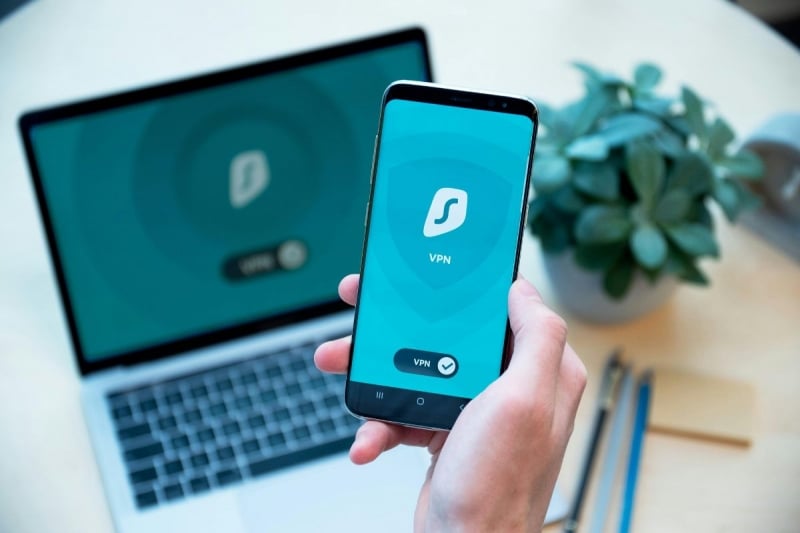
Image Credit: Dan Nelson via Canva Pro
Google Maps, Gmail, WhatsApp, and Instagram are all blocked in China. If you need them to get around or stay in touch, set up a VPN before you land. App stores are restricted once you’re inside the country, and not all VPNs work reliably. ExpressVPN and NordVPN are popular options that many Singaporeans use successfully.
Tripzilla Tip: Test the VPN at home first and enable auto-connect so you don’t need to fiddle with it on arrival.
2. WeChat is a must
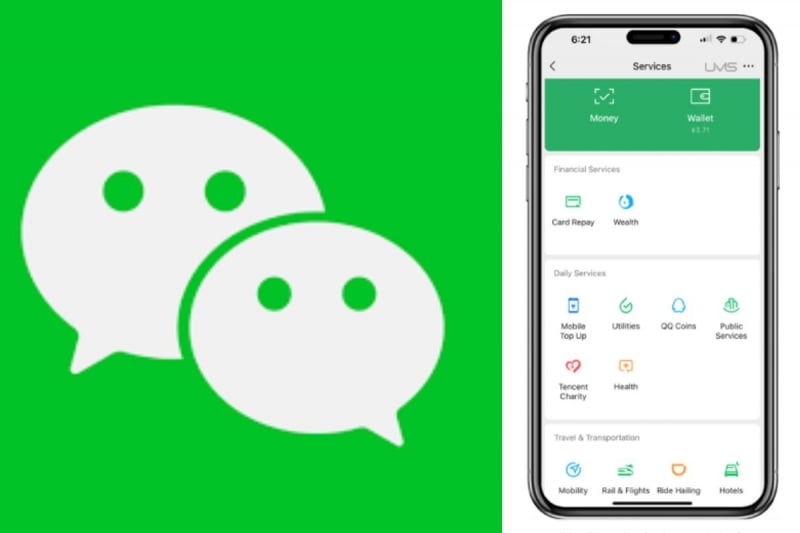
Image Credit: WeChat Official App
In China, WeChat is used for everything from paying for street food to showing your hotel booking or entering attractions. You can even use it to book a Didi (the Chinese equivalent of a Grab), so make sure to download the app and set up your account before touching down.
Tripzilla Tip: Download Alipay as well, so you can have a backup in case one doesn’t work.
Also read: What Apps to Download Before Travelling to China
3. English is rare even in big cities
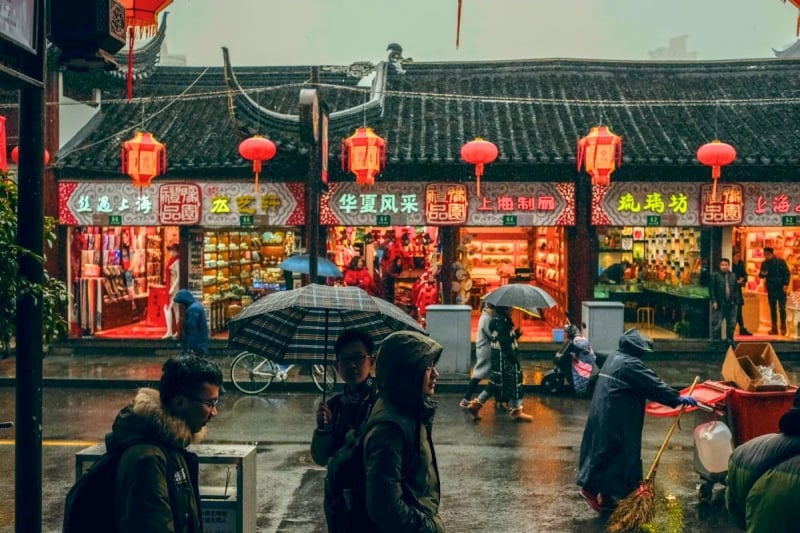
Image Credit: Nuno Alberto | Unsplash
Singaporeans are used to multilingual environments, but in China, English isn’t widely spoken. This applies to taxi drivers, shopkeepers, and even hotel staff. Don’t assume pinyin will help because most people read Chinese characters only. Having key addresses saved in Chinese or screenshots of place names will save you from long detours.
Tripzilla Tip: Download Pleco or Google Translate with offline packs. And screenshot your hotel name and address in Chinese.
4. High-speed trains are better than flights
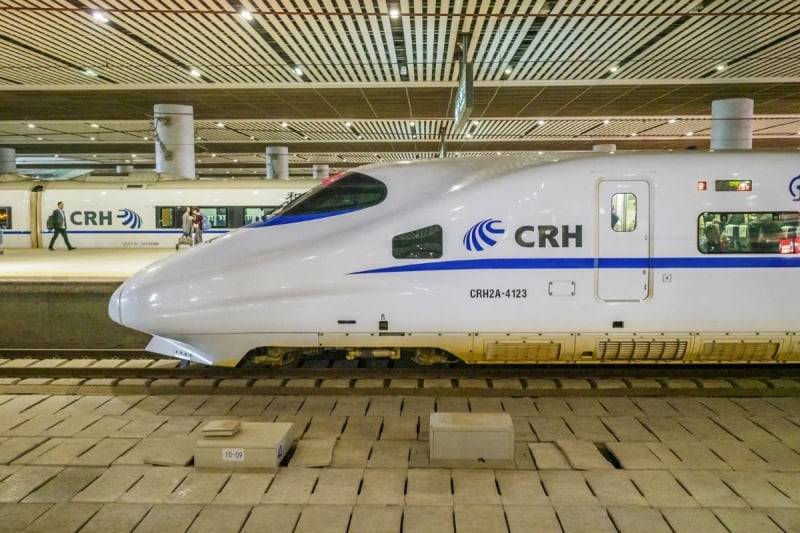
Image Credit: Alexander Schimmeck | Unsplash
China’s high-speed rail is fast, clean, and more comfortable than flying. Trains can reach up to 300km/h and often get you to city centres faster than domestic flights once you factor in airport transfers and waiting time. Just remember that train stations in China are huge and work more like airports, with security checks and boarding gates.
Tripzilla Tip: Book tickets early on Trip.com and always bring your physical passport to collect tickets or board.
Also read: 7 Scenic Train Rides in China You’ll Want to Take at Least Once
5. Don’t expect public toilets to have paper or soap
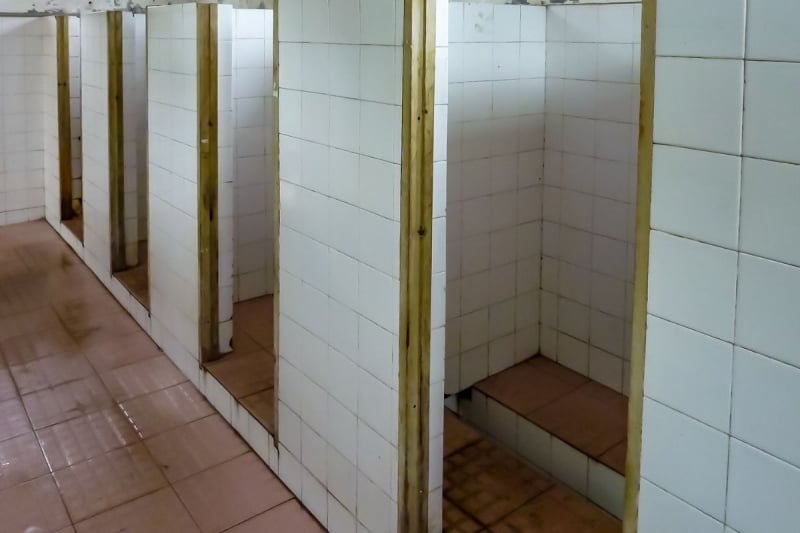
Image Credit: dragoneye555 via Canva Pro
Public toilets are generally clean and free, but you’ll rarely find toilet paper or soap. Most are squat-style, even in train stations and parks. Malls and hotels tend to be better equipped, but it’s safest to carry your own supplies.
Tripzilla Tip: Pack tissues and hand sanitiser in your day bag. Also, don’t wait until it’s urgent because toilets aren’t always easy to find.
6. You can drink the water, but you probably won’t want to

Image Credit: pixelshot via Canva Pro
Tap water in China isn’t safe for drinking unless it’s been boiled. Locals either boil their own or buy bottled water, and most hotels provide an electric kettle in the room. While ice is less common in local establishments, it’s generally safe at higher-end restaurants and cafes.
Tripzilla Tip: Always check if your hotel provides bottled water. Bring a reusable bottle if you’re planning long day trips so you can refill it with hot water from convenience stores or hotel lobbies.
7. Alipay and WeChat Pay now accept international cards
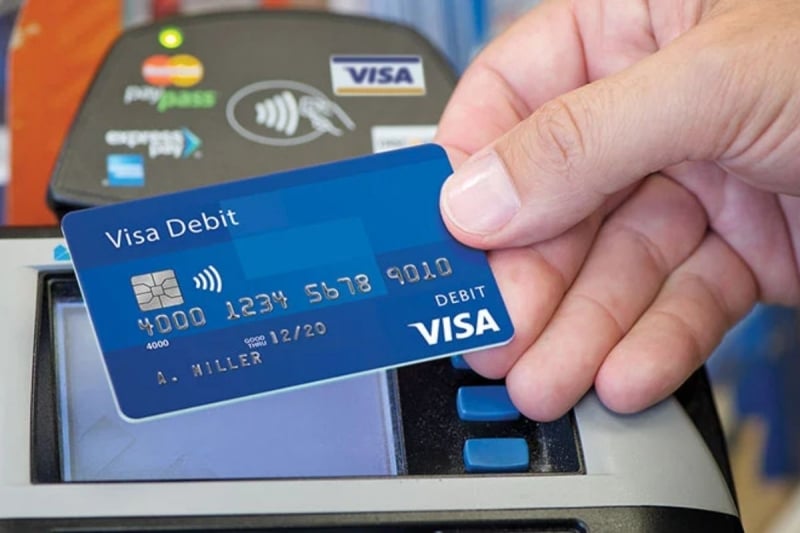
Image Credit: Visa Official Website
If you’re used to tapping your phone everywhere in Singapore, China’s QR code-based system will feel oddly familiar but functionally different. Most places don’t accept Visa or Mastercard directly, even at large chains, but you can now link your foreign card to Alipay or WeChat Pay and scan away like a local.
Tripzilla Tip: Enable “Tour Pass” in Alipay to top up a digital prepaid card that works for 90 days. It’s a good backup in case your bank card doesn’t go through.
8. Street crossings are not as by-the-book
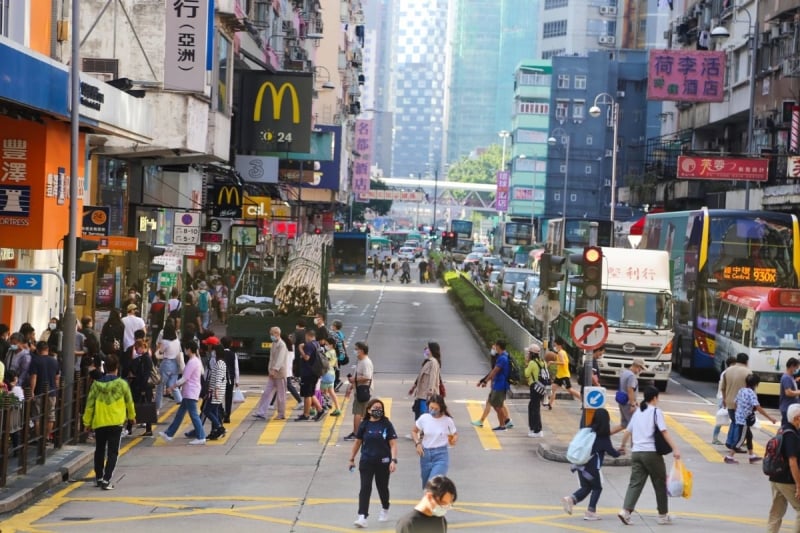
Image Credit: Akash Rai | Unsplash
Traffic in China doesn’t always follow pedestrian logic. Cars and scooters might turn even when the green man is on, and many won’t slow down unless they absolutely have to. Motorbikes also ride on sidewalks in some cities, so it’s important to stay alert even when you think you’re in a safe zone.
Tripzilla Tip: Follow locals when crossing roads, especially in big intersections. Walk confidently and don’t hesitate mid-way; drivers expect consistency, not hesitation.
9. Hygiene standards can vary
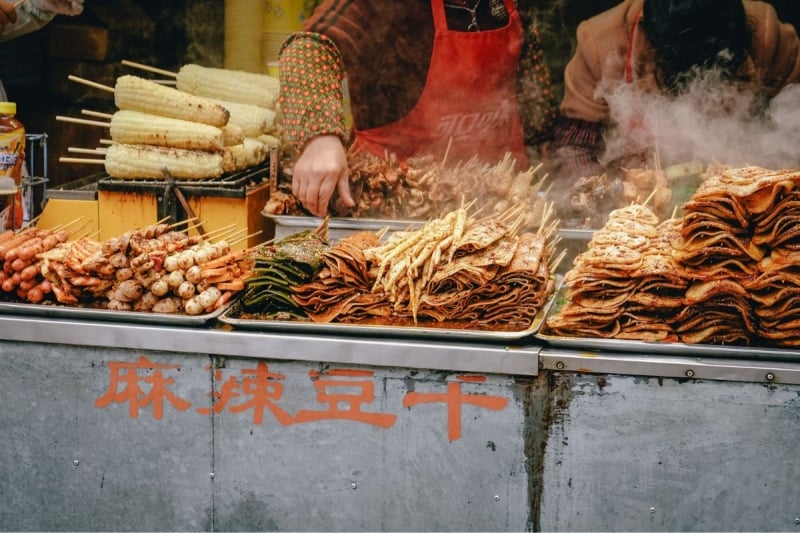
Image Credit: Zooey Li | Unsplash
In general, food is safe to eat, but don’t expect the same cleanliness standards as back home. Street food is part of the culture, and while some stalls are perfectly fine, others might be questionable. It’s common for restaurants to reuse plastic gloves or for cutlery to come unwrapped. In rural areas, this gap is more noticeable.
Tripzilla Tip: Bring a small pack of Dettol wipes and your own chopsticks or spoon if you’re particular. Many locals do the same.
10. Expect some cultural friction and a bit of staring
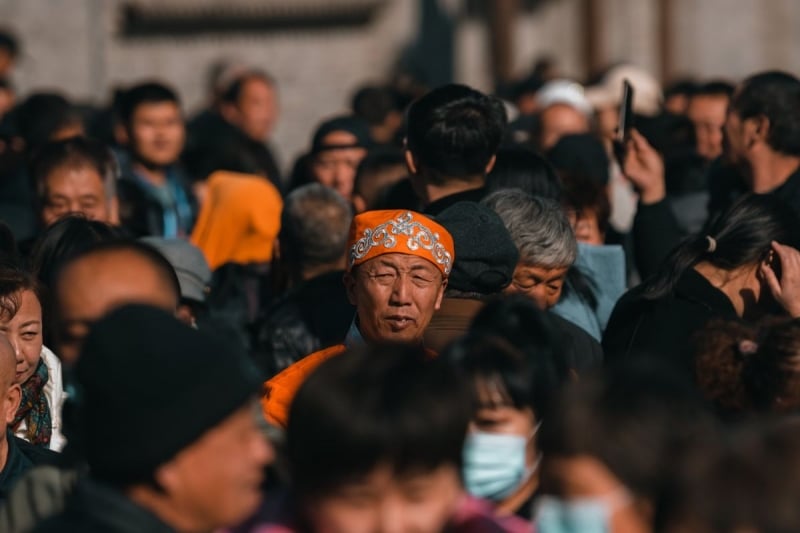
Image Credit: Cajeo Zhang | Unsplash
In less touristy areas, people may stare, cut queues, or ask personal questions like “How much do you earn?” or “Why no children?” It’s rarely meant to be rude. Queueing is improving in big cities, but you’ll still see elbows flying at train stations or buffet lines.
Tripzilla Tip: Don’t take it personally. Keep your valuables close, ignore line-cutters when possible, and bring a sense of humour to take any unexpected situation in stride!
11. Avoid peak holiday periods unless you enjoy crowds
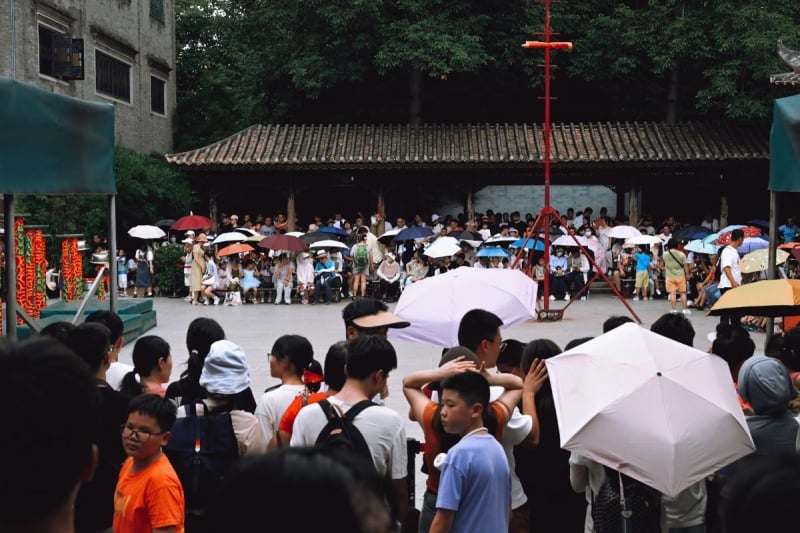
Image Credit: wang binghua | Unsplash
China’s public holidays are intense. During Golden Week or Chinese New Year, travel demand skyrockets, prices rise, and tourist spots get flooded with domestic travellers. If you’re used to avoiding Orchard on weekends, multiply that by ten. Trains and hotels sell out weeks in advance.
Tripzilla Tip: Check China’s public holiday calendar before booking. Travel in late spring or autumn if you want good weather without the crowds.
12. Not all tours are created equal
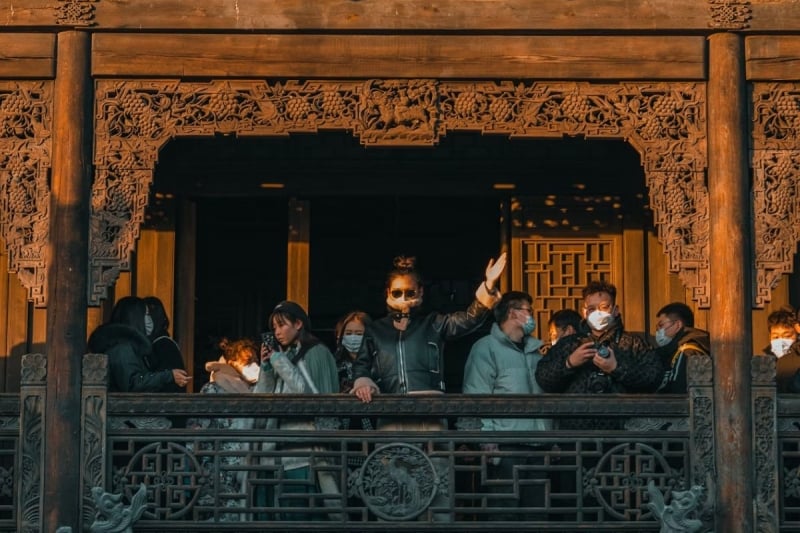
Image Credit: Cajeo Zhang | Unsplash
Cheap group tours often come with hidden costs (e.g., forced shopping stops, rushed sightseeing, and limited flexibility). You might end up spending more time in jade factories than at actual attractions. If you prefer breathing room and fewer sales pitches, consider private tours or plan your itinerary yourself.
Tripzilla Tip: If you do join a tour, check reviews thoroughly and ask for a clear breakdown of what’s included.
13. Keep your expectations open and your plans flexible
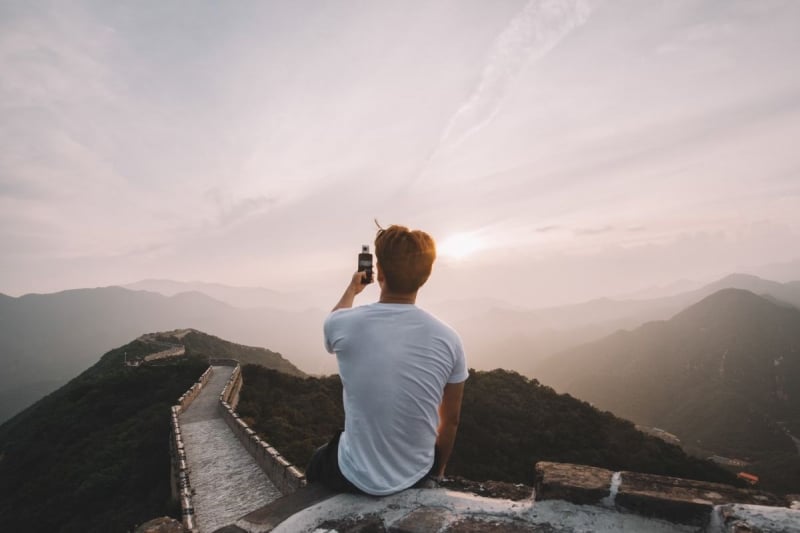
Image Credit: Road Trip with Raj | Unsplash
Things might not always go to plan. Your train might be delayed by security checks. Your taxi driver might not know your hotel, even with the address. People might shove past you in queues. But you’ll also find kindness in small moments, food that surprises you, and views that stay with you long after the trip ends.
Tripzilla Tip: If something strange happens, ask yourself if it’s wrong or just different. Then lean in and go with it.
Also read: 7 Unique Things to Do in China You Didn’t Know Existed
Final thoughts
Travelling in China for the first time can feel overwhelming, but it’s also deeply rewarding. The systems may work differently, the pace can feel relentless, and yes, not everything will go smoothly. But that’s part of the experience. With a bit of preparation and an open mind, you’ll find yourself adapting quickly, and soon enough, scanning QR codes to pay will become part of your muscle memory.
Just remember, you don’t need to understand everything to enjoy it. Just stay observant, stay flexible, and let the experience unfold as is!




